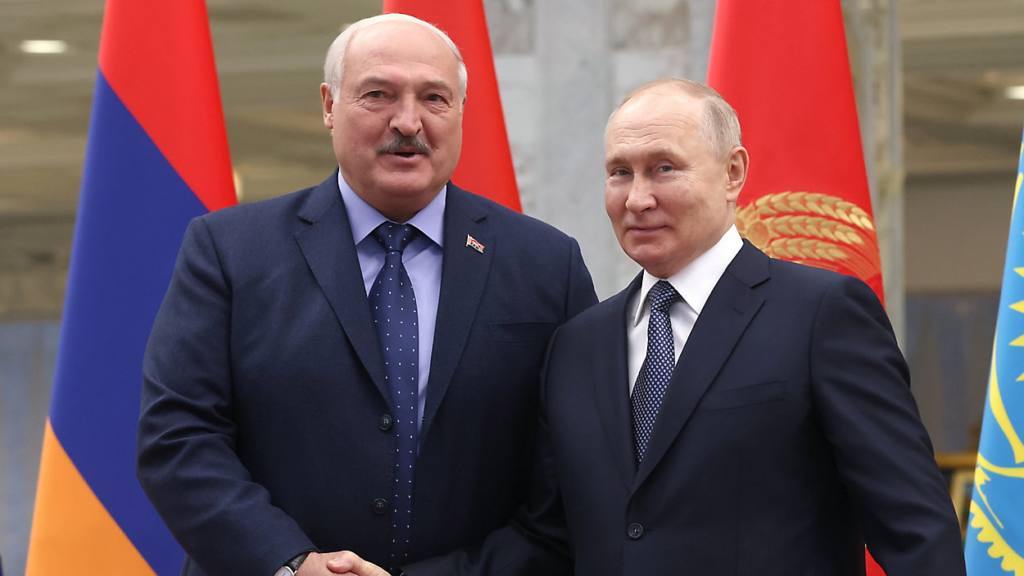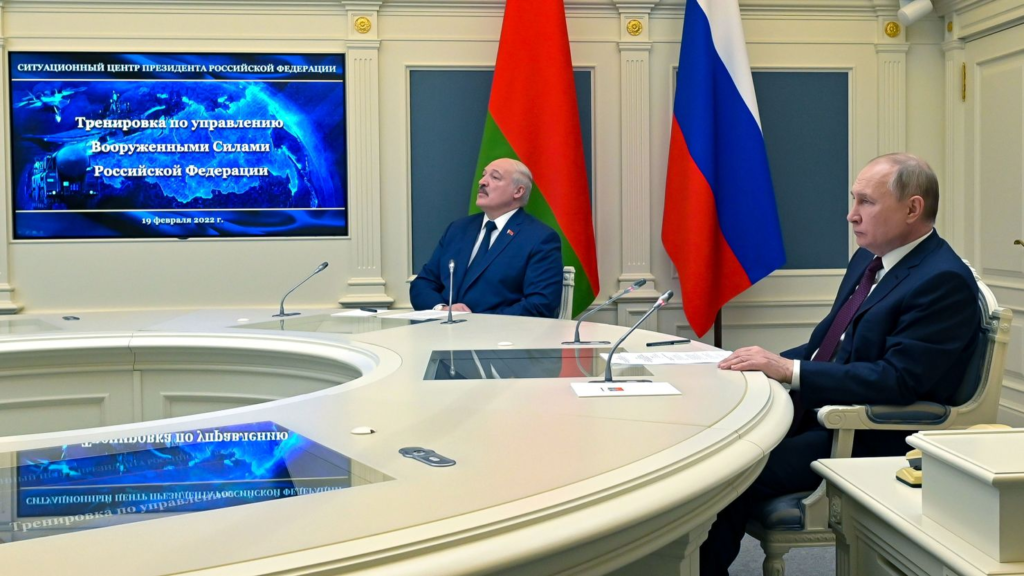
Belarusian President Alexander Lukashenko appeared poised to extend his three-decade rule after state TV exit polls reported he won 87.6% of the vote in Sunday’s presidential election. The election, widely criticized as fraudulent by the U.S. and European Union, was marked by the absence of independent media and the imprisonment or exile of opposition leaders.
Lukashenko, a close ally of Russian President Vladimir Putin, dismissed accusations of suppressing dissent, saying his opponents chose their own fates. At a marathon press conference lasting over four hours, he justified the imprisonment of political figures, claiming, “Prison is for those who opened their mouths too wide and broke the law.”
Despite the criticism, official reports showed an 81.5% voter turnout among the 6.9 million eligible citizens. Exiled opposition leader Sviatlana Tsikhanouskaya called the election a “ritual for dictators” and urged international leaders to reject its legitimacy. Protests erupted in cities like Warsaw, highlighting global disapproval.

Western Condemnation and Lukashenko’s Defiance
The U.S. and EU preemptively labeled the election a sham, with EU foreign policy chief Kaja Kallas calling it a “blatant affront to democracy.” Lukashenko brushed off these allegations, reiterating his indifference to Western recognition. “I don’t give a damn about the West,” he said, asserting that Belarus would never bow to external pressure.
The election follows years of human rights violations under Lukashenko’s regime. The 2020 election saw mass protests, with tens of thousands arrested and Western nations refusing to acknowledge him as the legitimate leader. Human rights organizations report 1,250 political prisoners remain behind bars, including Nobel Peace Prize laureate Ales Bialiatski, who is serving a 10-year sentence on disputed charges.
A Balancing Act Between Russia and the West

Lukashenko’s dependence on Russia has deepened during the ongoing Ukraine conflict. Belarus served as a launchpad for Russia’s 2022 invasion and hosts Moscow’s tactical nuclear weapons. Yet, Lukashenko hinted at potential dialogue with the West, expressing a willingness to ease sanctions and rebuild relations if the war ends.
Political analysts suggest Lukashenko faces increasing challenges balancing loyalty to Putin and seeking legitimacy from the West. He noted “light at the end of the tunnel” regarding the Ukraine conflict and called for compromise between Moscow and Kyiv during potential peace talks.
The Future of Belarus Under Lukashenko
At 70, Lukashenko sidestepped questions about his succession, stating he has no immediate plans to step down. “When the time comes, we will think about this,” he said, maintaining his grip on power for the foreseeable future.
Critics argue that Lukashenko’s authoritarian rule and suppression of dissent will only deepen Belarus’s isolation. However, the leader continues to assert his control over the nation’s future, dismissing international pressure and focusing on navigating geopolitical tensions.


























